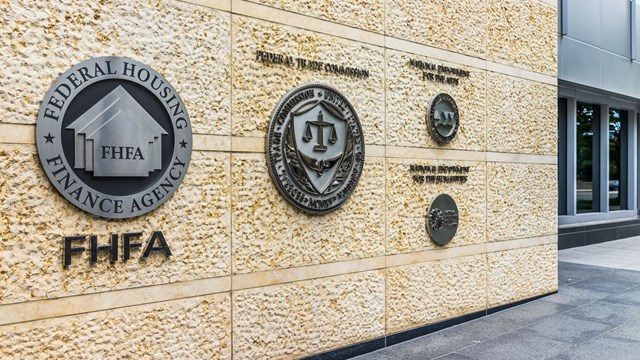Though many—in fact, most—co-op buildings flatly forbid residents from subletting their apartments to rental tenants, many co-op (and many more condo) buildings have populations of subtenants residing in them. Sometimes a unit owner or shareholder takes on a roommate, or has a friend or family member move in for an extended period of time. The reasons for these arrangements can vary widely, from the purely economical (a roommate can help defray costs) to the emotional (a parent or sibling needing support during an illness), and are for the most part peaceful and drama-free.
That said, friction does occasionally arise between rental tenants and fully-vested resident owners, or between tenants and the board. And in in the case of Airbnb, when apartments are rented out to complete strangers for a few days, that friction can ignite into serious acrimony, and even lead to litigation.
Let’s take a look at the gray areas between legal and illegal tenancy in co-op and condo buildings, and how boards can protect the stability and security of their communities while also respecting owner’s rights.
HOA and Condo vs. Co-op
While the vast majority of multifamily residences in Florida are condos, there are a handful of co-ops—and the difference between the two forms of residential housing is particularly stark when it comes to rental tenants.
“The traditional sublet dispute, on the basic level, is when there’s a landlord and then a subtenant. Technically as a co-op owner, you’re a tenant of the cooperative corporation,” explains Attorney T. Austin Brown of The Austin Brown Law Firm in New York City. “So you have a lease that delineates your rights as far as subletting goes. For legal sublets, most co-ops want to have a board interview [of the prospective subletter]; they want to make sure that the tenant is going to be able to pay the maintenance, that they’re going to be good neighbors, the same way that they would want from a shareholder.”
This process is onerous by design, as co-ops tend to dissuade subletters; indeed, the inability to easily rent out apartments is one of the primary reasons co-ops tend to cost less (and sell for less) than similarly-appointed condos. “I lived in a co-op for seven years, that we couldn’t rent out at all,” Brown recalls. “They just wouldn’t even entertain the notion of it. And it was right there in the proprietary lease.”
That doesn’t mean that rentals don’t take place—the illegal sublet has been part of the fabric of dense urban areas for generations—just that the consequences are more dire if and when the situation is discovered. “With the illegal ones, you’re violating the co-op’s proprietary lease in much the same way that you would if you were in a regular rental building,” Brown says. “It’s a little more complicated because of that proprietary lease issue, but ultimately, if you’re in violation of that lease, [the board] can bring the case to evict both the owner of the premises and the subtenant in housing court, in the same way you would in regular landlord-tenant court with a sublessee.”
Condos are not structured in the same way as co-ops. They are the residential real estate version of unfettered capitalism, while co-ops are more like highly regulated socialists. “With condos it’s different, because condos are subdivisions,” Brown continues. “It’s almost as if you tipped the building over, it would be a bunch of houses next to each other. It’s the same sort of zoning scheme, with every apartment unit considered a separate property. What you have in those cases is the condo association agreement and a lien on each of the units that the condo association has based on compliance with rules.” This makes it much more difficult for condos to prohibit, or even really impede, rentals—although they are trying. “Usually condos are pretty liberal, but I’ve been seeing condo agreements going out now that are much more restrictive about subletting, looking to require some kind of board approval.”
Rules Making
There is some leeway with how the rules can be implemented, but the professionals agree that it’s advisable to have rules in place. “The association or board can really define the terms for what is a guest, how many times you can have a guest on the property for, say, a period of a year,” says Elizabeth A. Bowen, a shareholder attorney with the firm of Siegfried, Rivera, Hyman, Lerner, De La Torre, Mars & Sobel, P.A., which has offices in Coral Gables, Plantation and West Palm Beach. “A number of our associations have a limitation on the number of unaccompanied guest visits that can be extended in a year. So, pursuant to the rules perpetuated by the board, you may be allowed to have an unaccompanied guest stay in the unit for a term of less than 30 days, three times a year. Or whatever they determine the rule is going to be.”
As with any aspect of community administration, having clear definitions and enforceable parameters is more important than laying out complicated timetables when it comes to controlling access and certain behaviors, says attorney Ramon C. Palacio, a partner with the law firm of Association Law Group, P.L., in Miami. “That is, while an arrangement spanning several months may at first glance be more indicative of a lease arrangement than if the stay was for just a couple of weeks, it is quite possible that a ‘guest’ occupying a unit is actually a tenant—or that the owner is marketing the property as a vacation rental, which may very well be in violation of the association’s governing documents.”
“When guests—even short-term ones—move in during an owner’s absence, a number of issues may arise, Palacio adds, “ranging from the more easily-corrected—like placing of garbage by the curb on a non-collection day, for example—to conduct that creates a safety concern or nuisance, such as erratic driving or loud noise late into the night, which can be a significant concern, particularly when longer-term guests are involved. In other words, short-term guests may create concerns related primarily to rules and regulations while longer-term guests could give rise to safety and security concerns.”
And what if Bill-the-guest-who’s-really-a-rental-tenant is cooking methamphetamines in his apartment, or running a brothel, or otherwise behaving really badly? What then? Or, in an increasingly common scenario, what if he’s sub-subletting the apartment, or running it as a short-term Airbnb rental? How does a building get rid of him?
Getting a rental tenant out of a condo apartment can be tough—even if it’s well within the rights of the board to do so. In extreme cases, the courts have to get involved. Florida tends to be pro-owner rather than pro-tenant, so in many cases using the courts is a cost-effective move.
“Regardless of the length of stay or the arrangement between the purported guest and the owner, the association does not become the landlord in such situations,” Palacio says. “However, some governing documents allow for an association to evict—in the landlord’s name—an unauthorized occupant pursuant to Chapter 83, Florida Statutes (the Florida Residential and Landlord Tenant Act), which is a significantly more expedient and cost-effective avenue for associations seeking the removal of unauthorized individuals.”
Fine Print
Co-ops, as mentioned, tend to be restrictive about who is allowed to reside in the building. This makes general headlines when someone like Madonna is denied permission to buy into a building, but the intent of the rule is to prevent the co-ops from turning into a mass rental unit. The more transient the composition of the building, the thinking goes, the less vested the tenants are to care for it. But people are good at finding loopholes and other ways to get around the by-laws.
“Basically, in a co-op, the person with a legal right to be there is normally the shareholder, who’s listed on the stock certificate and the occupancy agreement or proprietary lease,” explains attorney Steve Chase of the Law Office of Kramer & Shapiro P.C., in Kew Gardens, New York. “And then, normally, their immediate family. You sometimes get into all kinds of issues on that, because it can be a couple and their children, and then as the children get older and become adults, they still have a right to stay there.” But that right isn’t necessarily forever. “In a lot of co-ops, if a child moves out and goes away, other than to college or service in the army, and they come back years later, often they lose that right to have an automatic succession to the stock or the apartment.”
“Many co-ops do an annual inspection,” Chase adds. “They visit the apartment to check that there are no illegal washers or dryers or other safety issues, and some of them do try to determine who’s in the apartment. But it’s very difficult, because these inspections are usually on notice, so people make arrangements to either come back to New York or Florida, or from living elsewhere, and if they’re there only once a year, it’s for the inspection by the co-op board or its representatives. It’s definitely an uphill battle for a lot of these co-ops and their boards.”
Every state or municipality has laws concerning roommates, proper lease arrangements, and ways to evict illegal tenants or roommates that are not paying the rent.
Of course, it can be very difficult to prove that a particular roommate, who perhaps was never on a lease, no longer lives there. How often do you see your neighbors, really? The onus is on the board or the building to prove that this person now makes his residence in California or Arizona, or across town.
“It’s very difficult for the co-op sometimes, because it’s the co-op’s obligation to prove that the shareholder of record has moved out and is living elsewhere,” Chase explains. “If they don’t have any documentation, then there’s almost a presumption in housing court that the shareholder is living there, and the roommate law would cover that.” Those cases tend not to end well for the co-op.
“Often the board isn’t aware of the problem unless a neighbor complains,” Chase says. “So if you do have a subletter who is having loud parties, or is disturbing other people in some manner, it usually comes to management’s attention. But if somebody’s living there quietly, building administrators don’t generally have a monitoring system where they know who’s coming in and out of the apartment unit on a regular basis.”
Even using a co-op or condo as an Airbnb revenue generator month after month does not guarantee an automatic court victory. “The reality is—and this is the most important thing from my perspective,” says one industry pro, “the number of cases where tenants have been evicted, or the owner of a co-op or condo has been penalized with a forced sale for this kind of activity, is very negligible. So because you don’t have the courts coming down real hard on this, it actually incentivizes other people who want to use their units as revenue sources to do it until they don’t have a choice but to give up on it.”
Greg Olear is a freelance writer and a frequent contributor to The South Florida Cooperator.







Leave a Comment